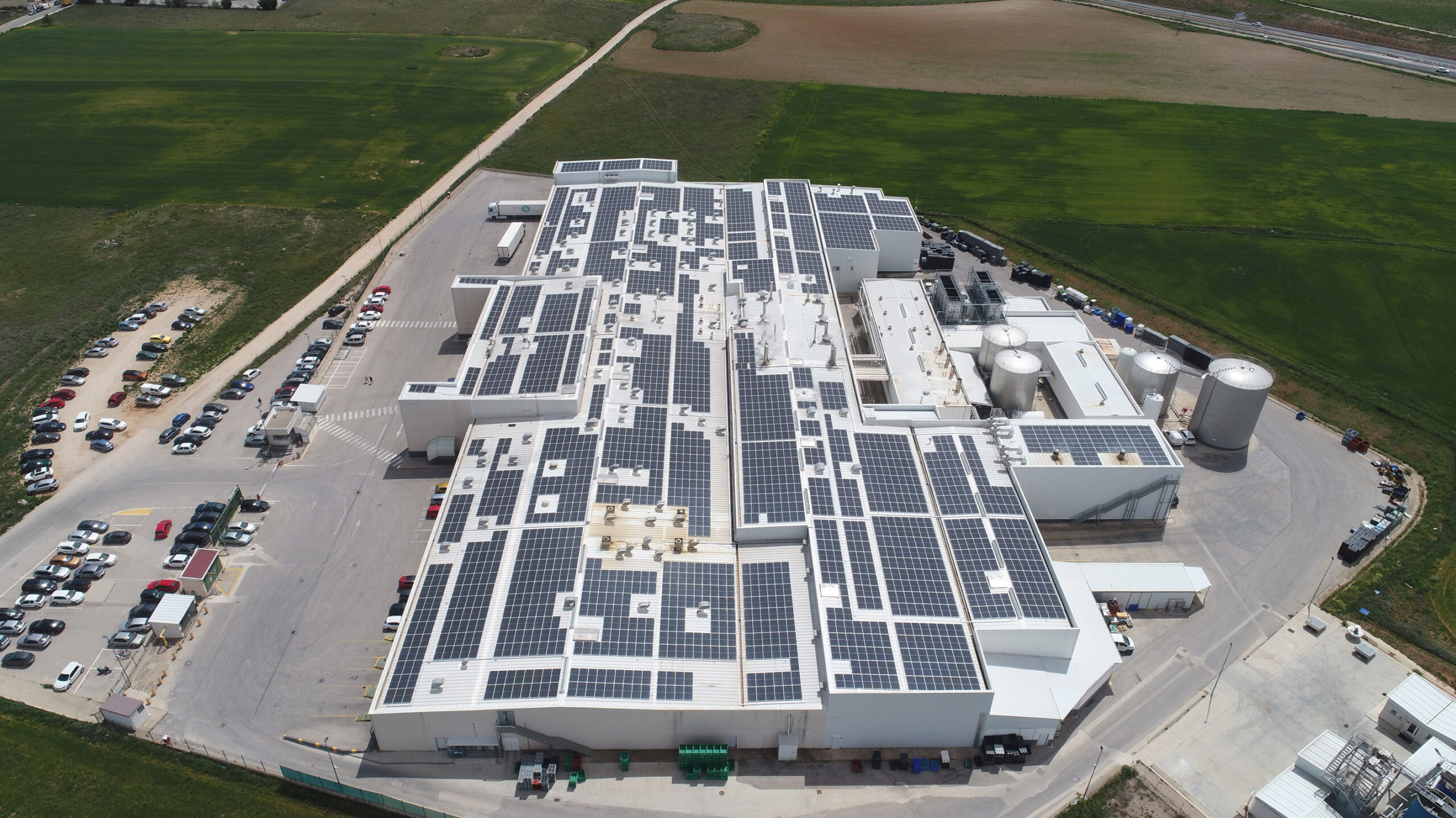- La compañía ha instalado paneles fotovoltaicos en sus plantas de producción situadas en Castilla-La Mancha, Castilla y León y Andalucía y tiene en marcha un proyecto para ampliar la potencia instalada en el matadero de Tarancón y en el secadero de Corral de Almaguer
- Es una de las iniciativas de autoconsumo solar más relevantes en España y del sector agroalimentario con una potencia total instalada que superará los 31 MWp y una producción anual de 47 GWh
- Cuando los nuevos proyectos de Tarancón y Corral de Almaguer estén operativos, Incarlopsa habrá invertido unos 18M€ en un proyecto enmarcado en el modelo de desarrollo sostenible y a largo plazo de la compañía y ejecutado durante los últimos dos años
Tarancón (Cuenca), 25 de abril de 2023.- Incarlopsa, compañía castellanomanchega líder en la producción y elaboración de productos cárnicos porcinos, prevé que a finales de 2023 el 35% de la energía que necesita para elaborar sus productos procederá de fuentes limpias y renovables, reforzando el compromiso medioambiental de la compañía con un modelo de desarrollo sostenible y a largo plazo y cumpliendo así con antelación con uno de los objetivos previstos para 2027 en materia de mitigación del cambio climático: consumir aproximadamente el 15% de la energía eléctrica procedente de fuentes renovables.
En septiembre de 2023 está prevista la puesta en marcha de las últimas instalaciones de autoconsumo solar que está desarrollando la compañía, dos instalaciones fotovoltaicas en suelo que suministrarán energía al matadero que Incarlopsa tiene en Tarancón (Cuenca) y al secadero situado en Corral de Almaguer (Toledo), y que completarán los proyectos que la compañía ha ejecutado sobre las cubiertas de sus centros de producción situados en Castilla-La Mancha, Castilla y León y Andalucía.
Ambos proyectos tendrán una potencia total instalada de 14,1 MWp y supondrá la inversión de 8,2M€, con lo que Incarlopsa habrá destinado en los últimos dos años un total de 17,63M€ a promover la instalación de fuentes de energía limpias y renovables en sus plantas productivas.
Cuando estén operativos, Incarlopsa habrá desarrollado una de las iniciativas de autoconsumo solar más relevantes en España y en el sector agroalimentario con una potencia total instalada de 31,2 MWp y una producción anual de 47 GWh dedicada íntegramente a autoconsumo, que permitirá a la compañía evitar la emisión de 17.145 toneladas equivalentes de CO2 anuales.
“Nuestro compromiso con la reducción de emisiones GEI es firme. El desarrollo del proceso de descarbonización iniciado en 2021 es una clara muestra de nuestra apuesta por modelos energéticos limpios y sostenibles. Un proceso que culminará después de verano cuando se pongan en marcha las nuevas instalaciones solares que actualmente se están construyendo en nuestras plantas productivas de Tarancón y Corral de Almaguer”, explica Víctorino Carabantes, director general Industrial de Incarlopsa.
Un proyecto desarrollado durante los últimos dos años y que aplica a todos los centros productivos de la compañía
El proyecto de autoconsumo solar desarrollado por Incarlopsa comenzó en 2021 con la instalación de paneles fotovoltaicos sobre las cubiertas de dos de sus secaderos, el situado en Tarancón (Cuenca) y el ubicado en Olías del Rey (Toledo) y que incorporaban una solución tecnológicamente muy avanzada para preservar las condiciones ambientales de las plantas productivas: paneles solares colocados sobre una estructura que se pegaba directamente sobre la cubierta, sin necesidad de hacer agujeros para anclar las placas solares.
La utilización esta fuente de energía renovable también se ha aplicado sobre el resto de instalaciones productivas que la compañía tiene en Castilla-La Mancha, Castilla y León y Andalucía. En concreto, se han instalado placas solares en los secaderos de Olías del Rey (2,2 MWp), Tarancón (1,2MWp), Corral de Almaguer (4,6MWp) y Jabugo (0,5 MWp); en la planta de corte y envasado de producto fresco (1,3 MWp), la fábrica de elaborados (1,4 MWp) y el matadero (5,2 MWp) de Tarancón; y sobre la fábrica de embutido ibérico de Guijuelo (0,7 MWp).
En total, esta primera fase del proyecto supuso la inversión de 9,43 M€ y una potencia total instalada de 17,1 MWp, cifras a las que ahora habría que añadir la inversión de las nuevas instalaciones fotovoltaicas en suelo de Tarancón y Corral de Almaguer.

